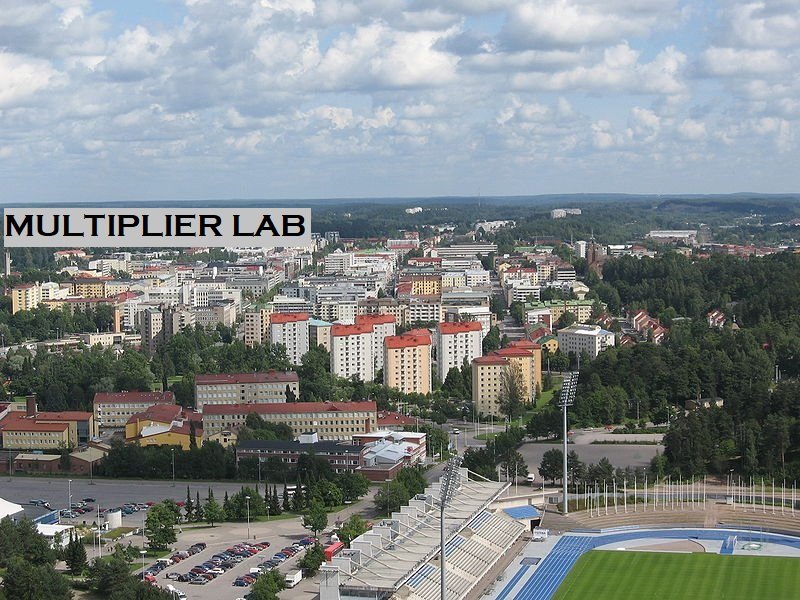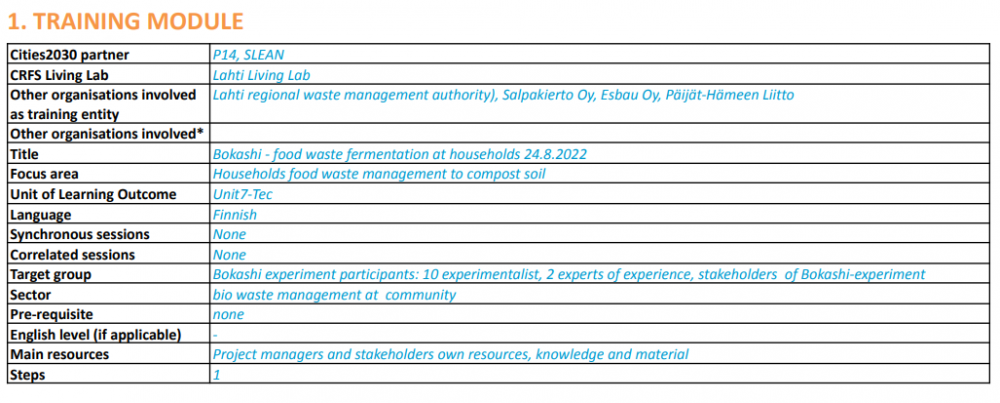Capacity Building: Bokashi Training
Participants considered the session an insightful and pleasant experience. The atmosphere was safe and encouraging to discuss and debate. The perspectives of participants represented: governance, operator, regional development unit, and household. The common feedback was that no surprises but the session gave better awareness and understanding of actor drivers, barriers, and goals. IMPACT: The result aims to influence research, policymakers, policy implementations, and capacity-building institutions. They have a key role to raise awareness of different food waste management solutions that households can and will apply. After 5 years, inhabitants will separate better the biowaste than today. Those who are able to bio-compost by using isolated heat composters are the mainstream. But there is also room for those urban citizens who want to show their positive carbon handprint and process their food waste into enriched organic soil and fertilizer. For them, bokashi bio-composting will be a well-known, available and feasible solution. The reuse of food processing residuals in the household gardens to renovate soil and enhance plant growth and yield has an impact on inhabitants and city regions. The impact reflects on inhabitants' empowerment, resilience, and self-sufficiency in urban agriculture and food production. It has positive impacts also on biodiversity. Urban agriculture binds carbon which fosters carbon neutrality and thus mitigates climate change.
Full text available here: WP5-T5.1_TrainingModule_bokashi.pdf



